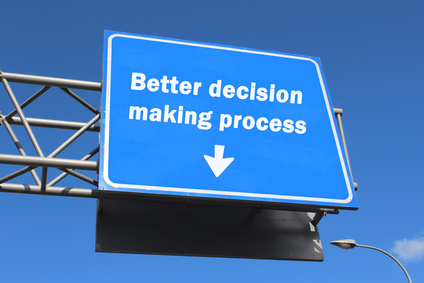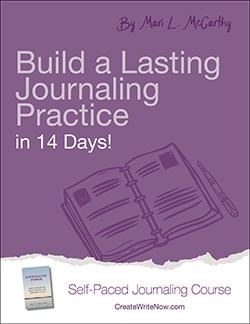 A personal journal is often used as an outlet, a tool to turn on the flood of emotion that is pent up in social circumstances such as work or family. This is a great use for your journal, but another aspect of journaling involves patient exploration of how you feel about an issue.
A personal journal is often used as an outlet, a tool to turn on the flood of emotion that is pent up in social circumstances such as work or family. This is a great use for your journal, but another aspect of journaling involves patient exploration of how you feel about an issue.
Many people make a “pros” and “cons” list when they are struggling to make a decision, but this can be challenging for more complicated issues. For one thing, you often tend to make up reasons that have an opposite so that each side comes out a tie. Making a list and measuring its length also doesn’t take into account the weight of each factor. For example, if accepting a certain job will satisfy all your living requirements and make your family happy, that’s great, but what if the work makes you miserable? That factor needs to be weighted as very important.
Advantages of using a Personal Journal
What about using friends and family as a sounding board?
While friends and family can be very helpful when making important decisions, sometimes they can be too helpful and too ready to give advice. This is where a personal journal has the advantage. It allows you to listen to your inner voice, then assume a different persona to evaluate the values of that voice, without judging. This is sometimes very difficult for family, or even close friends, to do.
What about consulting books and online sources?
Another possible place where people might turn to help make decisions is the Internet and its advice. While online blogs and advice articles can help you think about the results of a certain decision, you should not merely take the advice without adding to it your own evaluation— how will taking that job, or buying that bike, or loaning that money affect your future and your happiness? Your journal can help you discover personal insights through answering those questions.
Step 1: Defining Your Values
A better way to capture your true inclination when making a decision is to respond to the journal prompt: “Why do you want to do this, and what will it give you?”
Write on this topic for more than a page, and you will see the important values behind the pros and cons. You may start writing about financial outcomes, which point to a need for stability, predictability. You may gush about exciting adventures to come, which indicates a desire for change and challenge. Getting the “what you want” on paper and then taking a second look is a great way to see through to the values you want to honor.
Step 2: Journaling All Sides of the Issue
Before you make a decision, look at all sides of an issue. This requires facing down your fears and worries about what might happen. It serves a similar purpose to the “cons” column but allows you to explore those possibilities.
Be concrete when you write about your worries; instead of “financial risk,” write, “not making enough money to pay rent.” The former doesn’t get you thinking about possible solutions, but the latter might. If you’re worried about paying your rent, you can increase income, or decrease rent. You can decrease rent by moving, getting a roommate, or negotiating a different rate.
Step 3: Making a Mindful Decision
Now you’re ready to try on that different persona and evaluate objectively what best fits your current needs. This process can be used in combination with other decision aids (friends, online resources), or alone.
Take the time to make a mindful decision, using the following actions:
• Brainstorm on what you want to get out of this decision
• Reflect on the values behind those wants
• Write about what worries you about going with any or all of the options before you
• Reflect on whether there are other ways to address those worries
• Pretend you’re a cool, dispassionate observer and evaluate the worth of the wants and the risks of the worries, and make your decision
How do you use journaling to make a decision? Please share your tips in the comments.
If you want to learn how journaling can help you tackle life's challenges, make better decisions, and solve more problems, please download the free eBook, The Journaling Guide to Manage The Stress and Strains of Life.
Are you new to journaling? Or perhaps you're an experienced journaler who wishes to restart a daily journaling practice? Our Build a Lasting Journaling Practice in 14 Days self-paced journaling course can show you how.



Leave Comment